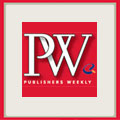
 Cory Doctorow is writing columns for Publishers Weekly. In this month’s column Doctorow discusses his love of audiobooks and the difficuties he’s encountered in getting them into his fan’s ears. I’m going to quote several paragraphs of this excellent essay, you can check out the full article |HERE|.
Cory Doctorow is writing columns for Publishers Weekly. In this month’s column Doctorow discusses his love of audiobooks and the difficuties he’s encountered in getting them into his fan’s ears. I’m going to quote several paragraphs of this excellent essay, you can check out the full article |HERE|.
I just flat-out love audiobooks. There’s nothing like a story being read aloud to you as you go for a long walk or go for a drive. For years, I’ve been reading my short stories, articles, and even a couple of my novels for my podcast, which has thousands of weekly listeners. So I was delighted when my agent sold audio rights to my fourth novel, Little Brother, to Random House Audio. RHA does great books, and the actor they tapped for the reading, Kirby Heyborne, did a superb job.
Unfortunately, distribution hasn’t gone smoothly. RHA didn’t want to do physical CDs—understandable, perhaps, as time was too short. Besides, CD sales are in free-fall while digital delivery using Audible is skyrocketing. Why sell antiquated CDs to an audience that mostly wants to play them on portable MP3 players?
I’m great with that in theory, but in practice it’s more complicated. I used to be a huge Audible customer. When I switched operating systems, however, I discovered that Audible’s DRM wouldn’t work on my Linux computer. I’ve spent thousands of dollars on my Audible collection, so I set out to convert it all to MP3. That required playing each book in real-time through the computer’s sound card, recapturing it with the AudioHijack program, and then saving it as an MP3. It took a solid month of running three old Macs 24/7 to get all of my audiobooks out of Audible’s proprietary wrapper and into the universal MP3 format so that I could take my investment with me to a new digital home.
Of course, I probably could have “pirated” the same audiobooks more quickly—after all, it’s not hard to find cracked Audible titles on the Internet. This is why I can’t understand why publishers or writers opt for DRM. It clearly doesn’t stop real pirates from copying, and it locks good customers into the DRM vendor’s ecosystem. I wouldn’t sell my books through a bookseller who demanded readers only enjoy them on a chair from Wal-Mart; why would I sell my audiobooks on terms that insist my listeners only use devices approved by a DRM vendor?
So, RHA and I went to Audible and politely asked them to sell Little Brother without DRM. They turned us down flat. And because Audible is the only retailer who can sell on iTunes, that closed the door on the largest distribution channel in the world for audiobooks.
For my next book, Makers, we tried again. This time Audible agreed to carry the title without DRM. Hooray! Except now there was a new problem: Apple refused to allow DRM-free audiobooks in the Apple Store—yes, the same Apple that claims to hate DRM. Okay, we thought, we’ll just sell direct through Audible, at least it’s a relatively painless download process, right? Not quite. It turns out that buying an audiobook from Audible requires a long end-user license agreement (EULA) that bars users from moving their Audible books to any unauthorized device or converting them to other formats. Instead of DRM, they accomplish the lock-in with a contract. |READ THE REST HERE|
Posted by Jesse Willis